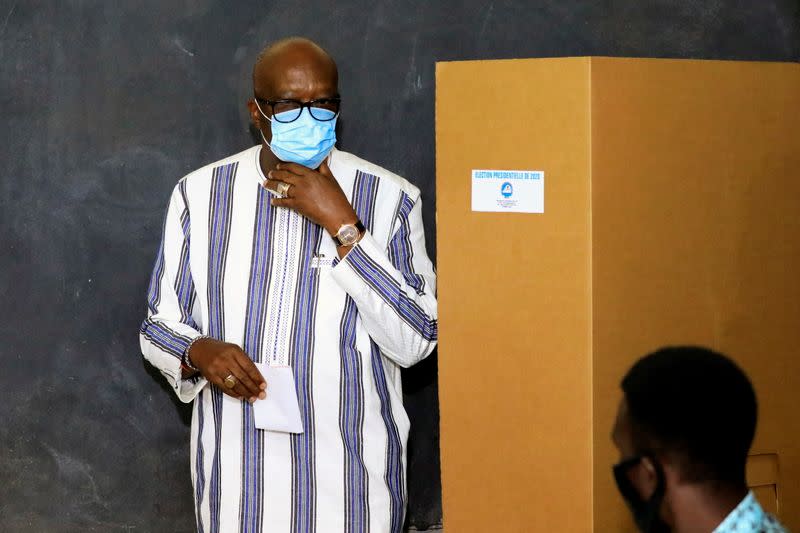Burkina Faso's Kabore edges closer to re-election as lead grows

By Thiam Ndiaga
OUAGADOUGOU (Reuters) - Burkina Faso President Roch Kabore edged closer to re-election on Wednesday despite opposition concerns over the validity of the count, extending a commanding lead with over half of districts reporting results.
Tallies posted to the election commission website on Wednesday morning showed Kabore with over 593,000 votes, almost four times as many as his nearest rival, former finance minister Zephirin Diabre.
Having secured 58% of total ballots cast, Kabore is on track to secure enough votes to avoid a second round. The commission began announcing results from additional voting districts late Wednesday afternoon.
Opposition objections to the count complicate an election already troubled by threats from Islamist militants. Hundreds of thousands of citizens were unable to cast ballots on Sunday because their polling stations were closed for fear of violence.
The election commission had paused announcing results on Monday when five opposition representatives from the 15-member commission voiced concern that some districts had not produced manual vote tallies to accompany electronic ones, as required by law.
The five commissioners did not show up for work on Tuesday but returned on Wednesday, even as they questioned the validation of results in their absence.
"Public opinion and political actors will judge the scope and validity of such validations and proclamations," they said in a statement.
An observer mission from the Economic Community of West Africa States (ECOWAS) said on Wednesday the election was peaceful and largely free of incident.
Kabore, who won election in 2015, has said the vote went smoothly. The 63-year-old president campaigned on achievements such as free healthcare for children under the age of five.
He also vowed to do more to address rising insecurity caused by groups linked to al Qaeda and Islamic State, which are also active in neighbouring countries in West Africa's semi-arid Sahel region.
(Reporting by Thiam Ndiaga; Writing by Hereward Holland and Aaron Ross; Editing by Bate Felix, William Maclean/Mark Heinrich)


